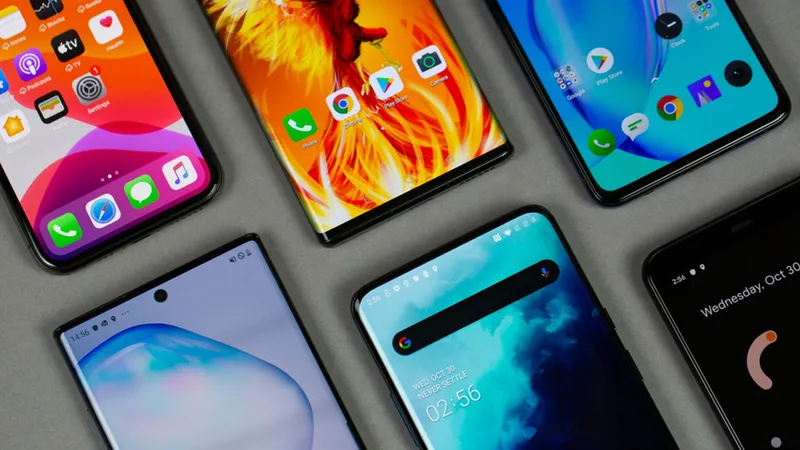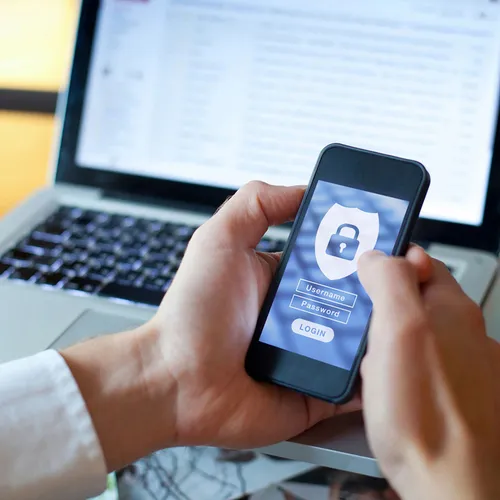

Smartphones Are Becoming Prime Targets for Cybercriminals – Here’s What You Need to Know
According to researchers, cyber-criminals are increasingly targeting smartphones. The number of cyber-attacks against mobile phones has increased by over 50% in the first half of 2019, as compared to the same period in 2018. The number is expected to rise further in 2020. User dependency on smartphones will increase as more applications are developed.
Furthermore, smartphone and internet use has skyrocketed in recent years, so cyber criminals have more people to target. In this article, we will explore why cyber-criminals are targeting smartphones. We will then go through the ways smartphones are attacked. A list of ways you can protect yourself from cyber-attacks will also be provided. Finally, we will explore how you can protect your organization or your children from cyber-criminals.

Why cybercriminals are targeting smartphones?
Smartphones now carry detailed information about the user. Everything from financial data, personal information, confidential images, social media data, identity, and the location is logged into smartphones. This is a treasure-trove of information for cyber-criminals looking to cash in on vulnerabilities. Your phone can be infected with malware via a seemingly benign app downloaded from either the Google Play Store or Apple App store, though Android devices are more vulnerable.
Hackers can also eavesdrop on phone calls to gather personal information or listen to business plans. Besides, cyber criminals routinely target phones to collect private data such as images or videos. The user is then blackmailed to pay the hacker to protect their privacy. Another common reason is to collect financial data such as your bank account details. They can use these details to make transactions on their own. Smartphones now carry powerful processors.
Hackers can use this computing power for mining cryptocurrency. The result is a slow phone that does not perform as expected. Individuals in authoritative positions such as government employees are also highly vulnerable because they hold information related to national security.
Cyber-criminals frequently target them to collect that data. Finally, smartphones are attacked simply because they are pervasive and easy to target as users do not take serious precautions.
How cyber-criminals target smartphones
There are many methods that cyber-criminals use to hack into a smartphone. One method is to use third-party apps. Hackers recognize that users install apps and then cease using them or use them carelessly. Vulnerabilities in such apps are exploited to collect user data because we routinely give permissions to an app without giving it a second thought.
Hackers also use Wi-Fi networks to collect information from a smartphone. A fake access point can be created, designed to get others to use it. While the user will not suspect anything odd in terms of use, the hacker can monitor all internet traffic from the device.

Cyber-criminals also access the phone via fake applications. Apps available on the official Google or Apple app stores are monitored, but those downloaded from other sources can be tools to hack into your phone. Everything about the fake apps looks and feels just like the original, however, there is a code embedded in the app to let hackers into your device. Other tools include phishing attacks, keyloggers, click-jacking, social engineering, and fake websites.
Here’s what you could do to protect your smartphone:
Here are some of the tools and tricks you can use to protect yourself from cyber-criminals.
- Keep your operating system updated whether you are using Android or iOS.
- Make sure all apps installed on your phone are updated because the developer will try to remove any vulnerability from each version.
- Avoid installing apps from unknown sources.
- Do not store confidential information such as pictures or financial data on the device. Move the data to a more secure device such as your laptop.
- Invest in purchasing a renowned security app.
- Avoid connecting to public Wi-Fi, and use a Virtual Private Network (VPN) while accessing the internet from your device. Also, keep your Bluetooth service off if it is not in use.
- Keep track of the permissions you have granted to installed apps. Furthermore, periodically review the list of installed apps and remove those you no longer need.
- Take note of how your phone is performing. Batter drainage issues or excessive data use could point to a breach.
While these are clear techniques that you can use to protect your device, there are other situations where more is required. For example, if you are a parent, you may think that protecting your child’s device requires constant access. Similarly, employers are often concerned about how an infected smartphone can be used to hack into a company’s network or steal confidential information. In addition to security apps, device monitoring apps such as XNSPY can also be used.
Employers can get their workforce onboard in installing monitoring apps to make sure that the company’s data remains safe from theft. Similarly, parents can monitor their child’s use of the device. XNSPY monitoring app offers a broad range of features that employers and parents can use. Let’s go through some of its monitoring features.
You can use the app to access all calls made to and from the phone. A complete list of all incoming, outgoing, and missed calls will also be visible on the app’s control panel. Besides, all text messages on the device are visible. Apps such as Facebook, WhatsApp, Viber, Instagram, and others are also monitored by the app. All emails and web browsing history can be seen on the XNSPY control panel too.

There are other advanced features as well. For example, you can monitor the location of the device in real-time. Furthermore, the geo-fencing feature can also be used to stay alert on changes to the device’s location. Also, all pictures, videos, and audio files stored on the device are accessible. You can use the app’s watch list to receive instant alerts. Add a contact number or a specific word to the list, and the app will immediately notify you if there is an activity related to it. You can also remotely control the device. View a list of installed apps or block the suspicious ones.
Using Xnspy, you can also remote lock a device and wipe off its data in case of loss or theft. These are valuable features that employers and parents can use. However, it is important to make sure that all legal and ethical guidelines are followed before using a monitoring app like XNSPY.
Summing up:
Smartphones are becoming the primary target of cyber-criminals. This is because they carry detailed information regarding our personal lives. Private information such as pictures, bank account details, location, and other data are carried by our devices.
Furthermore, we also do not think much about smartphone security beyond a simple lock screen password. Hackers recognize these vulnerabilities and use a wide array of strategies to break into your phone.
However, you can use several tricks to improve the safety of your phone. Besides, parents and employers can also use monitoring apps to keep track of the device’s activity to make sure it remains safe. Finally, monitoring apps provide the tools to swiftly intervene if there is a security threat.





